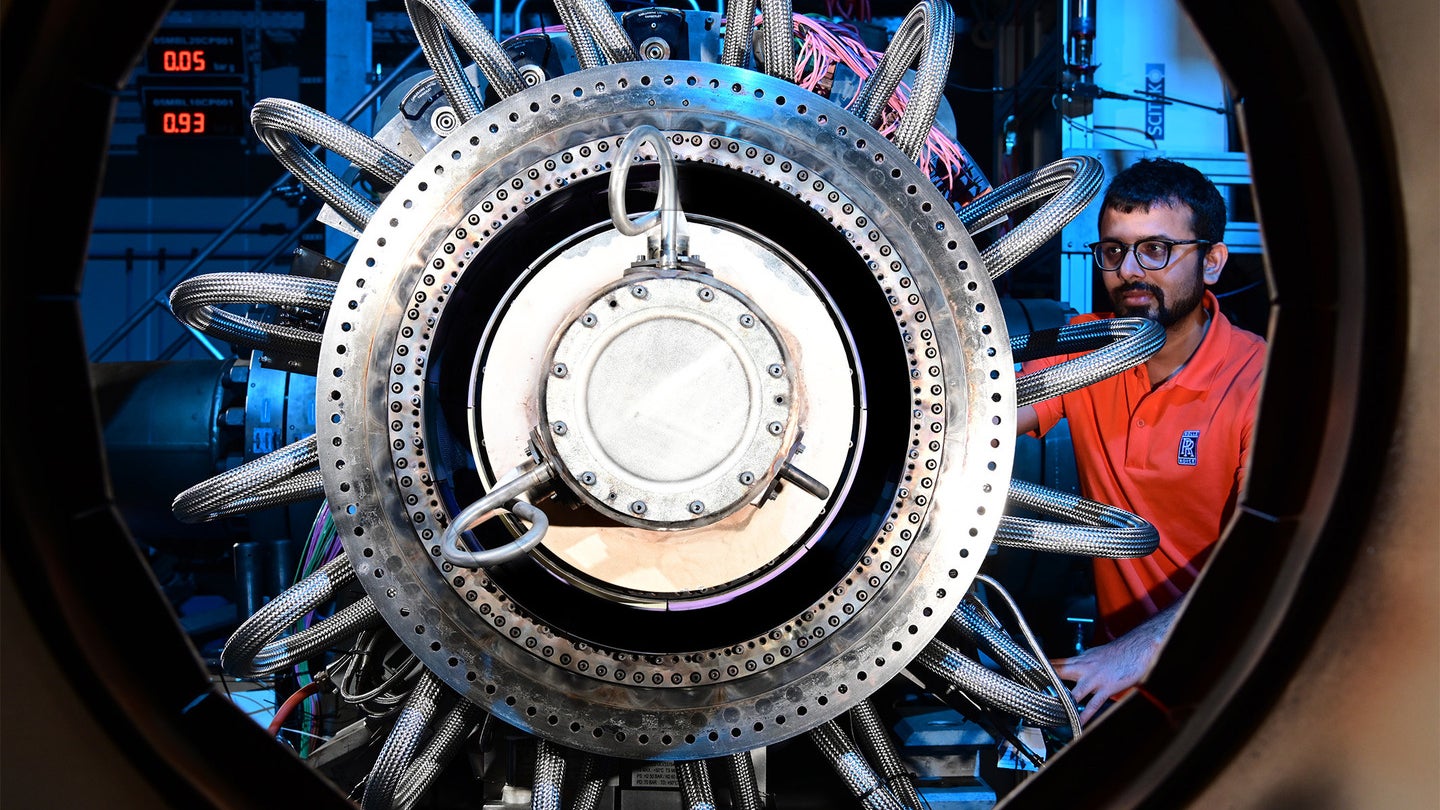
Aerospace manufacturer Rolls-Royce has revealed that it successfully proved the viability of running hydrogen fuel on an engine in the conditions needed for maximum take-off thrust.
Rolls-Royce has been working on the creation of a hydrogen combustion engine in partnership with UK airline easyJet and had already conducted the world’s first use of a modern aero engine, an AE2100, on green hydrogen last year.
The latest tests on a full annular combustor of a Pearl 700 engine also showed the success of the design of advanced fuel spray nozzles to control the combustion process.
Grazia Vittadini, chief technology officer at Rolls Royce said: “This is an incredible achievement in a short space of time. Controlling the combustion process is one of the key technology challenges the industry faces in making hydrogen a real aviation fuel of the future.
“We have achieved that, and it makes us eager to keep moving forward.”
In addition to partnering with easyJet, the project has also seen work from Loughborough University in the UK and the German Aerospace Centre, Deutsches Zentrum für Luft-und Raumfahrt (DLR), the latter of which hosted the final full-pressure combustor tests at its Cologne facility.
How well do you really know your competitors?
Access the most comprehensive Company Profiles on the market, powered by GlobalData. Save hours of research. Gain competitive edge.

Thank you!
Your download email will arrive shortly
Not ready to buy yet? Download a free sample
We are confident about the unique quality of our Company Profiles. However, we want you to make the most beneficial decision for your business, so we offer a free sample that you can download by submitting the below form
By GlobalDataThe new nozzles, which were individually tested at Loughborough, were able to control the flame position during combustion by using a new system to progressively mix air with the hydrogen fuel to manage its reactivity, overcoming the issue of hydrogen burning much hotter and faster than kerosene.
Markus Fischer, divisional board member for aeronautics at DLR, said: “This is an outstanding success story and we are more than happy to have contributed our hydrogen testing capabilities.
“It was very exciting supporting this technology journey and seeing the burner technology mature in various rigs at our Institute of Propulsion Technology.”
The technology tested at Loughborough and DLR will now be brought together with the information gained from the AE2100 test last year to prepare for the next stage: a full gas hydrogen ground test on a Pearl engine.
The project will move on to a full ground test on a Pearl engine using liquid hydrogen, with easyJet and Rolls-Royce hoping to move to flight tests after that.
News of the successful testing follows an announcement last month that the UK Government had chosen two projects to receive a share of £8m in funding as part of its competition to support the development of hydrogen-fuelled transport.



